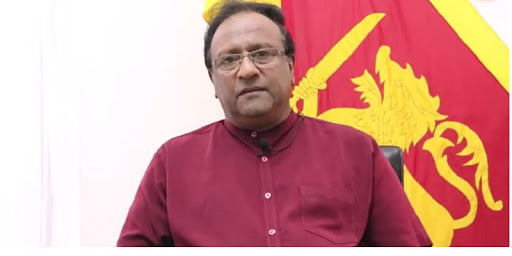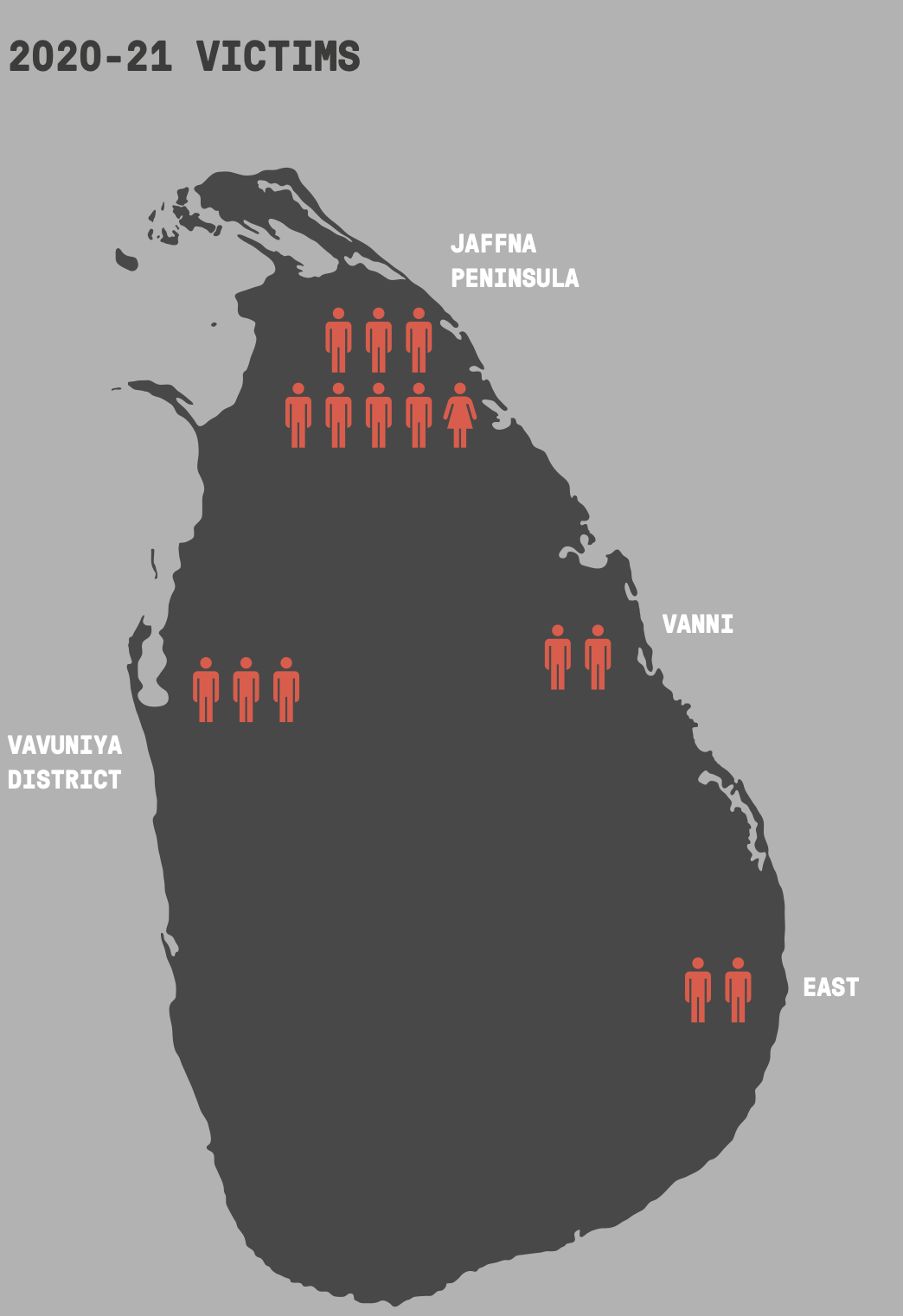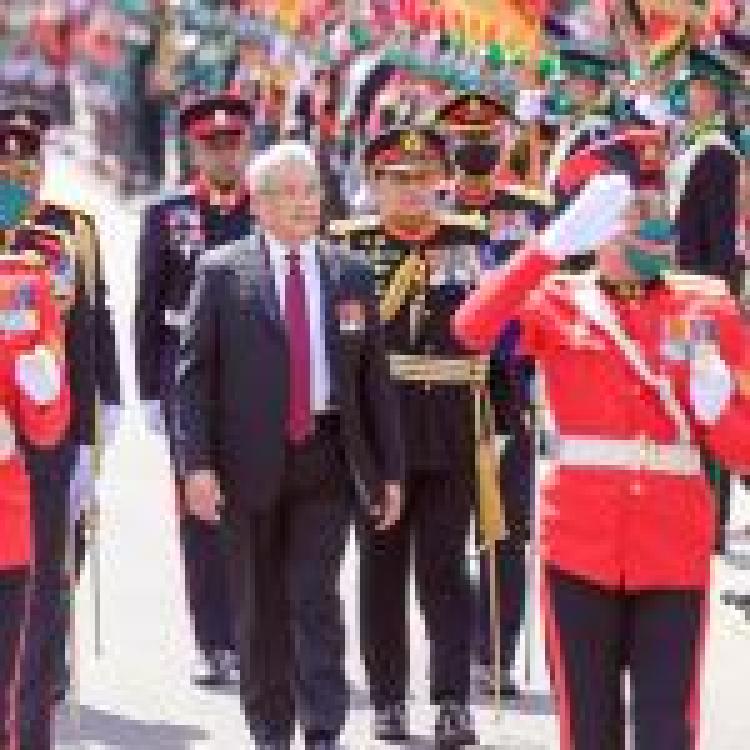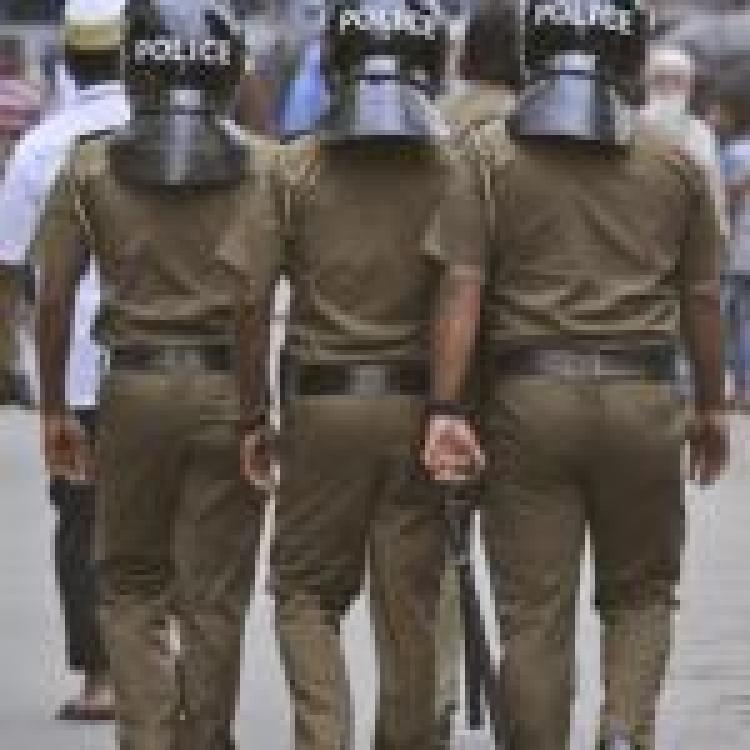![]()
Public Security Minister, Sarath Weerasekera has said that 'human rights charges' levelled against police officers in active duty would be dropped if charge sheets against them are not completed within a six-month time frame.
Speaking at a ceremony in Kandy, launching the community police promotional programme, the minister said that amendments would be introduced to the Establishments Code to "provide relief" to police officers who receive charge sheets for human rights violations in the line of duty.
The proposed amendment effectively grants immunity to officers if human rights abuse cases are levelled against and the subsequent investigation does not progress within six months.
Sri Lanka's judicial system routinely fails to hold state forces accountable with many investigations being delayed and convicted personnel released. Weerasekera noted that polices officers with active "human rights cases" against them had undergone difficulties, he highlighted that 35 officers who had been tipped to be promoted to Assistance superintendent had their promotions delayed until the investigations were over. The security minister added how these officers had only been acting "as per the instructions of their senior officers" and for such reason should not be criminalised. Discussions surrounding the proposed amendment would be held with the Inspector General of Police (IGP) in the coming weeks.

Sarath Weerasekera
Torture, sexual violence, killings
Human Rights Watch (HRW), recently released a report where they have called on the international community to suspend all assistance and collaboration with the Sri Lankan Police force. They drew attention to the rising police brutality, custodial and extra-judicial killings in Sri Lanka noting that,
"Sri Lanka’s police are increasingly killing and abusing people under cover of the Covid-19 pandemic measures and an anti-drug campaign."
The report also highlighted a number of cases in which the police beat civilians to death including those who allegedly violated quarantine rules. It also highlighted the case of Chandran Vidushan, a 22-year-old whom the police tied to a tree and assaulted before he was killed in custody. The report also pointed out the link between police abuses and the drive against drugs in Sri Lanka. Atrocities ranged from the police “planting drugs on suspects,” to “invasive body searches of female suspects.” It highlighted that the task force created by President Gotabaya Rajapaksa to create a “disciplined, virtuous, and lawful society” involving military police officers is at the helm of the campaign against drug trafficking.
Torture is routinely used by the police and state forces, a report published last month by the International Truth and Justice Project (ITJP), documents the ongoing cases of abduction, torture and rape of Tamils in the North-East. The report contains testimonies of 15 Tamils who had been abducted, detained and tortured by Sri Lanka security forces Since Gotabaya Rajapaksa took office in 2019. As Sri Lanka intensifies its crackdown in the North-East, the ITJP highlight that the number of young people being targetted by the state is greater than the number of former LTTE cadres, demonstrating a "growing pattern documented in recent years of young adults being targeted who have increasingly tenuous, and in some instances no, links to the LTTE."
The ITJP noted that a "new generation of Tamils" are being victimised for exercising their constitutional rights, the report added,
"The victims being detained now are generally young and of little intelligence value to the security forces, who appear to be mounting a campaign of repression against legitimate Tamil expression of fundamental rights including protests or calls for accountability,"

ITJP Graphic
The notorious Special Task Force
The Special Task Force (STF) is a paramilitary police unit that is accused of committing mass atrocities over the course of the armed conflict and is increasingly involved in harassing and surveilling the civilian population across the North-East since the end of the conflict. The STF was originally formed in the early 1980s with the help of former British officials and Special Air Service (SAS) officers turned mercenaries. The STF is known to have committed numerous high profile massacres. The Trinco 5 case being one of them, remains an emblematic case in the Sri Lankan governments failure to ensure accountability through its own judicial system.
Five Tamil students were summarily executed by Sri Lanka's Special Task Force, whilst they spent an afternoon on the beach in Trincomalee.
To date, no one has been held accountable for the murder.
The case remains one of the highest-profile killings in Sri Lanka to receive international attention, listed in 2014 by the then UN High Commissioner for Human Rights' report on the island as one of four ‘emblematic cases’ of the government's failure to ensure accountability and having been raised repeatedly in international forums.
In June 2019, 13 Special Task Force members who were suspected of executing the five Tamil youth were acquitted. Fifteen charges were filed against suspects and they were released due to the lack of evidence.
Still searching for justice - 15 years on from the Trinco 5 Killings
Read more at The Island



